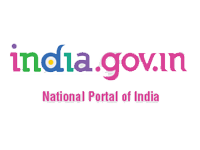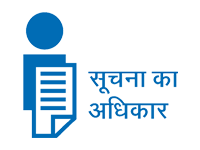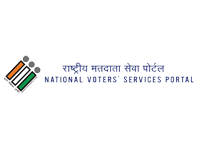CAG-ICSSR Colloquium (Delhi Chapter) on Audit of Health Sector and State Finances
Venue: CAG Auditorium, New Delhi
The Indian Council of Social Science Research (ICSSR), the apex body for promoting and supporting social science research in India, is organising a colloquium series across the states of India in collaboration with the office of the Comptroller and Auditor General (CAG) of India to foster informed dialogue and research-driven understanding of fiscal accountability, governance, and appreciation of CAG reports among young scholars and researchers. Coordinated by ICSSR in collaboration with the Accountant General’s (AG) Offices in various states, the Colloquium will deliberate on audit reports presented in the Legislative Assemblies. The forum aims to bring together distinguished social scientists, academicians, researchers, policy makers and young scholars to link academic discourse with fiscal accountability and to bridge the gap between academic research and real-world governance practices.
The inaugural Delhi Chapter of CAG–ICSSR Colloquium was held on 11th November 2025 in the auditorium of the office of the Comptroller and Auditor General (CAG) of India on the theme “State Finances and Audit of Health Sector.” Renowned economists nominated by the ICSSR delivered thematic talks and led the discussions during the Colloquium. The participants included officials from AG Offices, faculty members, researchers, ICSSR project and fellowships awardees, and students from universities and colleges of Delhi.
Prof. Dhananjay Singh, Member Secretary, ICSSR delivered the welcome address and provided a brief overview of the objectives of the Colloquium. He said, “the CAG-ICSSR Colloquium fills a critical gap in advancing research, capacity and research skill development of scholars and students for social and human sciences which is a crucial mandate of ICSSR. The audit reports of CAG offer comprehensive and rich resource of information, knowledge, and data on public fund management, fiscal governance, revenue generation, and fiscal expenditure of social and economic sectors which are very crucial for students and young scholars, the future policy makers of the country to engage with and develop an understanding of fiscal transparency. The audit compliance reports and performance audits play a crucial role in making Indian democracy and federalism stronger and resilient.” He emphasized that sound fiscal health, disciplined government spending, and efficient policy implementation were central to sustainable and inclusive development to achieve the vision of Viksit Bharat @2047.
Mr. Rahul Kumar, Director, O/o CAG of India made a presentation on the newly released publication on State Finances which offers decade long fiscal analysis of State accounts - an invaluable tool for policymakers and researchers. This is another important initiative of the CAG of India to ensure data democratisation.
Ms. Swati Pandey, Principal Director, O/o CAG of India, presented on the audit findings from recent audits of the health sector in Delhi. She shed light on systemic issues in public health infrastructure, efficiency gaps in service delivery, and challenges in the management of healthcare schemes.
Prof. Indrani R. Chowdhury, Professor, Centre for the Study of Regional Development, JNU, presented insights from CAG Report on Public Health Infrastructure and Management of Health Services in Delhi. She highlighted the dual burden of communicable and non-communicable diseases, describing Delhi’s health landscape as a paradox of advanced tertiary hospitals amid ground-level deficiencies. She pointed out the factors that have created challenges in providing state-of-the-art health facilities in Delhi and the possible solutions that can be drawn on the basis of the CAG reports.
Prof. A. K. Shiva Kumar, Ashoka University, spoke on the theme “Making Audit Work for People”. He observed that the CAG report on Delhi reflected the fundamental requirements of public funded institutions to address fundamental human needs. Stressing the need to bridge the gap between accountability and policy action, he offered thought-provoking ideas to foster a resilient healthcare system.
Prof. Ram Singh, Director, Delhi School of Economics, complemented ICSSR and CAG for joining hands to create an academic discourse and devise solutions through meticulous use of data available in the public domain through CAG reports. He underscored the importance of efficient utilisation of public funds, technological advancement, and effective urban governance, noting that big cities are expected to be engines of growth. Prof. Singh contextualized the public finances within the broader macroeconomic framework, discussing the implications of state-level fiscal health on developmental outcomes.
The presentations were followed by an interaction session in which the speakers engaged with the researchers and young scholars by providing answers to their thought-provoking questions.
This CAG-ICSSR collaborative initiative represents a significant step towards building awareness and knowledge on good governance, transparency and fostering a culture of accountability on the use of public funds.
About the Office of the Comptroller and Auditor General of India:
The Comptroller and Auditor General of India is a constitutional authority and the head of the Indian Audit and Accounts Department. As the Supreme Audit Institution of India, its mandate is to audit all receipts and expenditures of the Government of India and the State Governments, including those of bodies and authorities substantially financed by the government.
About the Indian Council of Social Science Research (ICSSR):
Indian Council of Social Science Research (ICSSR), established in 1969, is the apex body for promoting and supporting social science research in the country. One of the key mandates includes generating knowledge and awareness on critical socio-economic issues among early-career researchers and scholars. Through its various schemes and initiatives, ICSSR has played a pivotal role in capacity building, producing high-quality research, and encouraging innovative ideas that contribute to nation-building. It provides grants for projects, fellowships, international collaboration, capacity building, surveys, publications, etc. to promote social science research in India.





